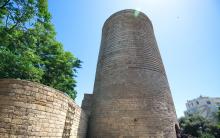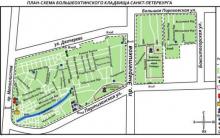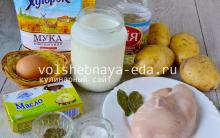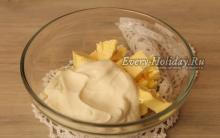The Kurds are now taking part in a separate line in the civil war in Syria, who have been trying to build an independent state at the junction of Turkey, Iran, Iraq and Syria since the 1840s. But this is not what is interesting first of all, but this:
The TEV-DEM “Movement for a Democratic Society” (Kurdish: Tevgera Civaka Demokratîk), which forms the basis of Kurdish self-government, makes anarchists around the world cry with envy. Strict separation of religion from politics, freedom of speech and religion, direct democracy, people's militia instead of the army and police, equality of men and women (including in terms of service in self-defense units), nationalization of natural resources - all this is there. At the same time, the Kurds claim that until recently they did not want to intervene in the war on anyone’s side, but were only defending their land.
Although the Kurds in Syria are no more than 10%, they were able to create one of the strongest rebel armies, which controls almost the entire northeast of Syria (and this is not some desert, but mostly fertile lands plus oil-bearing areas - up to 60% of Syrian reserves), and successfully defends itself against the Islamists from the al-Nusra Front and the Islamic State of Iraq and the Levant who are attacking it.
Combat wing of PYD and DBK - People's Self-Defense Units (Kurdish: Yekîneyên Parastina Gel, YPG)); However, the YPG leader claims that the units are not officially associated with any political party or ideology. Also noteworthy is the fact that unit commanders are elected by direct democratic voting. As of July 2012, the PYD had between 4,000 and 5,000 fighters on its side; according to the PYD leader on December 1, 2012, this number could rise to 10 thousand.
Since the end of May 2013, the YPG has been fighting mainly against Islamists and Free Syrian Army fighters trying to gain control over the Kurdish areas of Syria - thus, the Kurds play the role of a “third force” in the Syrian conflict. However, the PYD was accused by the Syrian opposition of being loyal to B. Assad (and even that the Assad government deliberately gave northeast Syria under the control of the PYD). Let me clarify: the Kurdish militia of Iraq is called “Peshmerga” (Kurdish: Pêşmerge) and has much in common with the YPG, but is not the same structure with it.
YPJ (Kurdish: Yekîneyên Parastina Jin) is the YPG women's brigade, created in 2012. Kurdish media admit that “YPJ troops are of vital importance in the defense of Kobani. The actual photo report about them was taken from 04/30/2015. But I was able to obtain a higher resolution photo.
Most female soldiers are unmarried girls under 30 years old


























According to the BBC news agency, up to 30% of the Kurdistan Self-Defense Units are women.
Surprisingly, many of them explain their decision to go to war by the possibility of self-determination. Thus, 21-year-old Ruba Jazera says: “I understand the Syrian revolution not only as a revolution of the masses, but also as a revolution of the female part of these masses, and therefore I consider myself an integral part of it. Women have been suppressed for more than 50 thousand years, and now we have the opportunity to have our own right to make decisions, the right to self-identification.” Many girls say that they went to fight because they did not have the opportunity to get a good education, and, accordingly, there were no prospects for a prosperous, relatively independent existence. "We are not like regular army. We are a revolutionary movement. We are not afraid of death,” says 23-year-old Gulbaad, writes
“What can these people from Daesh possibly show us? داعش Daesh is the Arabic term for ISIS) who are coming to fight us? We have roots here. We have a right to be here; therefore we have the right to defend ourselves. If we lose our land, we will lose our honor, and if we lose our honor, we will lose our right to speak out about our history and our language,” one of the girls said in an interview.
An important fact in organizing women's groups is that Islamists try to avoid fighting with girls. The reason for this is religious doctrine. The fact is that it is honorable for an Islamist to fall in battle, but if he dies at the hands of a woman, then, according to the interpretation, he will go to hell.
Symbol of Kurdish resistance beheaded



Known as Rehana, the girl inspired Kurdish fighters with her courage, personally killing more than 100 extremists. She was a symbol of the Kurdish resistance movement, writes The Daily Mail. 10/28/2014 ISIS militants took photographs of one of them holding a severed female head in his hands. Extremists claim that this is Rehana's head.
Some women go to war with their husbands. This is not prohibited, but starting new relationships at the front is not allowed.
Before enlisting in the unit, all girls undergo a mandatory six-week military training course. “All these women undergo the same serious combat training as men, under the leadership of the government army and a number of special forces. The results of female soldiers are in no way inferior to those of men, so dozens of our wives and daughters fight shoulder to shoulder with us on the front line, even as part of male detachments. In the near future, it is planned to send some of our female fighters to carry out special missions in Kirkuk,” says one of the commanders.
MOSCOW, March 29 – RIA Novosti, Maria Efimova. The world-famous Kurdish women's self-defense units are celebrating their fifth anniversary. During this time, the women of Syrian Kurdistan gained freedom that one can only dream of in that region. RIA Novosti spoke with Kurdish combatants about the Turkish operation in northern Syria, the political plans of the Syrian Kurds and feminism in military conditions.
"Radical Women's Revolution"
The world was recently reminded of the women's self-defense units fighting for the rights of the Kurds and recapturing the northern territories of Syria from IS*, together with the men's people's self-defense units, by the death of 26-year-old British woman Anna Campbell under Turkish bombs in Afrin.
Anarchist, feminist, animal rights activist - before arriving in Syria, nothing connected her with the Kurds. However, according to Anna’s father, she took the problems of the Kurdish people to heart and admired the type of social order that was established in Rojava (the Democratic Federation of Northern Syria, or Syrian Kurdistan, a self-governing federal entity proclaimed in 2012). RIA Novosti interlocutors in women's self-defense units claim that in their ranks there are several dozen girls from Europe, the USA and Australia.
“Kurdish women’s self-defense battalions are a unique phenomenon. It is not surprising that they attract activists from all over the world. Firstly, the women’s units showed themselves brilliantly in the battle with terrorists, whom the whole world considers “forces of evil”, opponents of any progress. Secondly, their members are ready to fight for women's freedom by any means, including armed means,” Melissa Delal Yanmis (alias Delal Kurdi), a representative of the Kurdish diaspora in Austria, who returned from Rojava last year, told RIA Novosti. — The Kurdish ideologist and founder of the Kurdistan Workers' Party Abdullah Ocalan teaches us in his writings that a free life is impossible without a radical women's revolution that will change people's thinking and social life in general. Anna Campbell was a true revolutionary and a true internationalist. And she became another spark in this revolutionary fire, like other foreigners who joined our ranks. I hope Russian women internationalists will also join this fight."
“I am a feminist, like most Kurdish women. A Kurdish woman is not afraid of death - death is afraid of her. We do not admit defeat. Victory and progress are our motto. Therefore, women all over the world stand in solidarity with us,” she reports in an interview with RIA Novosti A 23-year-old student named Cihan (fighting name Kecha Afrin - Daughter of Afrin), who is now in Afrin in the Kurdish battalions.
Kurdish Marxism
The Kurdistan Workers' Party was founded in 1978 as a Marxist-Leninist party with a national slant. There were plenty of socialist movements in the Middle East, but it was the PKK and its offshoots that became the most feminist-oriented. For Kurds, ethnic self-identification is more important than religious one, so among them the ideas of gender equality have taken root much better than in Muslim society.
Thanks to the role that the Kurdish women's battalions played in the struggle for national self-determination and the battle against Islamic radicals, the women of Kurdistan now enjoy freedom and rights comparable only to the status of Israeli women. Until recently, the Kurds practiced early forced marriages, female circumcision, honor killings, and polygamy. However, the authorities of the Democratic Federation of Northern Syria proclaimed six years ago, in an effort to rely on the widest possible strata of the population, legislatively put an end to all this (although, of course, this still cannot be done without it, especially in rural areas).
© Photo: courtesy of Melissa Delal Yanmis

© Photo: courtesy of Melissa Delal Yanmis
According to the interim constitution of Syrian Kurdistan, women must hold at least 40 percent of all government positions. Public institutions are required to have two co-chairs - a man and a woman, as are the executive councils of all three regions of Syrian Kurdistan.
However, Kurdish activists believe that there is still work to be done and talk about the need to eradicate patriarchal customs, demand equal pay and equal representation in the judiciary (today only five percent of the 250 judges are women).
"Romance novels are strictly prohibited"
Up to 40 percent of Kurdish fighters fighting in the Middle East region are women. In March 2013, the first women's self-defense battalion was created in Afrin, and a year later such units were formed in other parts of Syrian Kurdistan. Today, the number of women's self-defense units reaches 25 thousand people (two thousand women are reported to serve in the Iraqi Kurdish Peshmerga forces).
The battalions were replenished, among other things, by representatives of other nations and faiths: Arab Muslim women, Yazidis and Assyrian Christian women freed from the rule of IS* joined. These are mostly young, unmarried women, but there are also those who left their children in Turkish refugee camps to participate in the armed struggle.
Kurdish women's battalions played a huge role in the liberation of the cities of Raqqa, Kobani and Manbij from militants, and the rescue of thousands of Yazidis besieged by ISIS on Mount Sinjar in Iraq in August 2014. Some of these operations involved Kurdish female suicide bombers blowing themselves up near IS positions.
"Women's and men's armies have their own commanders, a man and a woman respectively. Men cannot give orders to women. Even highest ranks from male Kurdish formations must first turn to female commanders so that they can then lower the command below. But female commanders can order male fighters,” says British Kurd Ozkan Ozdil, who spent last year in Syrian Kurdistan as a field medic and participated in the liberation of Raqqa province from IS*. “We interacted closely with women’s formations - we played sports, participated in exercises, prepared food, and did cleaning. Unless they slept in different barracks. We were like one big family. Ranks meant nothing in communication unless we were talking about military orders. Women, in my opinion, are very brave. Maybe even bolder than men in some ways. I'm just fascinated by them. They dance and sing. You can always hear them from afar. Even ISIS fighters were afraid of them."
© Photo: courtesy of Ozkan Ozdil

According to a RIA Novosti interlocutor, in military field conditions with romantic relationships, everything is very strict: “Marriage in general is seen as an instrument of patriarchy. Of course, people fall in love and find time for dating and sex. But in general, love affairs are strictly prohibited. And if anyone "If he finds out, the couple will be kicked out of the units. And this is a big shame."
“In the region, girls, especially among Sunni Arabs, are married off very early and to those whom they have never even seen. So the opportunity to choose their own destiny is a huge privilege; they value it and do not want to return to the patriarchal way of life,” - Ozdil continues.
In recent years, the number of divorces in Syrian Kurdistan has increased significantly. Almost immediately after the announcement of the federation, the Kurdish authorities for the first time gave a woman the right to demand a unilateral divorce and leave, taking her children, as well as half of all property. Local women's councils provide local consultations, and as a result, several hundred divorces have been recorded in Kurdish-majority Kobani and even in the predominantly Arab-Muslim city of Manbij, where the new order has provoked resistance from local tribes and religious authorities. Among the main causes of divorce are polygamy of the husband, domestic violence or too early marriage. Girls who do not have time to give birth to children often join Kurdish women's battalions after divorce.
“The husband and family can demand that a woman not get a divorce, blackmail her, but in this case many turn to women’s self-defense units, of which everyone is afraid,” Ozdil concludes.
"Real ethnic cleansing"
During Operation Olive Branch, which Ankara has been conducting in northern Syria since January of this year, on March 18, Turkish troops, with the support of Syrian opposition units, captured the city of Afrin, which was under Kurdish control.
RIA Novosti's interlocutors claim that the Kurds will try to recapture Afrin from Turkey. However, in the coming months they will clearly not have time for this. Any day now, according to information coming from Ankara, an attack on Manbij will begin, and after that the Turkish army will move east of the Euphrates deep into Kurdish territories to establish control over areas where there is no Kurdish majority, such as Ras al-Ain or Tel Abyad.
The United States, which supports the Kurdish Democratic Union Party, sent its military to Manbij to train Kurdish troops to send a message to Turkey that the attack is not desirable. However, it is unknown how far the United States is ready to go to protect the Kurds; it is extremely undesirable for Washington to spoil relations with a NATO ally.
RIA Novosti's interlocutors are confident that sooner or later the Syrian Kurds will win the war with Turkey and return Afrin, preserving self-governing autonomy in northern Syria. “We do not need an independent national state - it has shown itself to be ineffective. According to the doctrine of Abdullah Ocalan, a system of democratic confederalism is needed. All communities living in this territory - Kurds, Arabs, representatives of different religions and peoples - must take part in the fate of the region and govern the cantons of Rojava on an equal basis, including on the basis of gender equality,” said Ozdil.
*Terrorist organization banned in Russia.
Syrian or Western Kurdistan (Rojavayê Kurdistanê) or Rojava (literally "west") - located in the north and northeast of Syria. The number of Kurds in Syria is about 3 million people, which is approximately 9% of the country's population. The city of Qamishli is considered the conditional capital of Western Kurdistan. The following most famous Kurdish parties and organizations operate in Syria:
"High Kurdish Council"- (Desteya Bilind a Kurd) (abbrev. VKS, DBK)
"Democratic Union Party"- (Partiya Yekîtiya Demokrat) (abbrev. PYD)
"Kurdish National Council » -(Encûmena Niştimanî ya Kurdî li Sûriyê)(abbrev. KNS, ENKS)
"People's Self-Defense Units" » - (Yekîneyên Parastina Gel)(abbrev. YPG)
"Women's self-defense units » - (Yekîneyên Parastina Jin) (abbrev.YPJ)
"Security of Rojava"- (Asayîş Rojava)
- (Tevgera Civaka Demokratik)(abbrev. TEV-DEM)
"Kurdistan Democratic Party-Syria"- (Partiya Demokrat a Kurdistanê li Sûriyê)(PDKS)
"Kurdish Front"-(Jabhat al-Akrad)
"High Kurdish Council" - (Desteya Bilind a Kurd) (abbrev. VKS, DBK ) -
body of the interim government of Syrian Kurdistan.

Emblem of the "High Kurdish Council"
The council was established in 2012 in Erbil. With the participation of Masoud Barzani, President of the Kurdish autonomy “Iraqi Kurdistan”. Created with the aim of uniting the Kurds in Syrian Kurdistan. The united organizations agreed to jointly manage the territories under their control until popular elections could be organized.
The Council consists of two main organizations:
Democratic Union Party (PYD)
« Kurdish National Council"(ENKS)
The Council also has its own armed forces and police, which are represented by the following organizations:
"People's Protection Units" (YPG)
« Women's self-defense units» (YPJ)
"Security of Rojava"
The “Higher Kurdish Council” consists of ten people:
Ahmed Suleiman
Ismaîl Hemê
Nasradin Ibrahim
Muhyedin Sheikh Ali (Mihyedîn Şêx Alî)
Saud Mele
Abdulsalam Ahmed
Aldar Xelîl
Ilham Ahmad
Salih Muslim Muhammad
Senam Muhammad (Sînem Mihemed).

Members "High Kurdish Council" with Masoud Barzani (center)
"Kurdish National Council of Syria" (Encûmena Niştimanî ya Kurdî li Sûriyê - abbrev. KNS, ENKS) is a Kurdish political organization. It was founded in 2011 with the participation of the Kurdistan Regional Government and its leader Masoud Barzani. The Council includes 26 members, 15 of them are leaders of Kurdish parties operating in Syria. They are also the founders of the Union.
Chairman of the Council - Abdul Hakim Bashar

Emblem of the Kurdish National Council

Abdul Hakim Bashar
Initially ENKS collaborated with "Syrian National Council" - body of the so-called anti-Assad opposition, but later ceased relations with it due to disagreements on the issue of Kurdish autonomy.
ENKS also conflicted with another influential Kurdish organization - Democratic Union Party(PYD). In order to resolve the contradictions between them, Masoud Barzani proposed the idea of merging these two organizations into a single "High Kurdish Council".
ENKS does not aim to create a separate Kurdish state, but advocates the creation of Kurdish autonomy within an undivided Syria.
At the international level, ENKS develops relations with the USA, EU and other Western countries. In 2012 the Chairman of ENKS visited The White house and the US State Department, where they discussed the problems of the Syrian Kurds.
ENKS is actively involved in the civil war in Syria.
"Kurdistan Democratic Party in Syria" (Partiya Demokrat a Kurdistanê li Sûriyê - abbrev. DPKS,PDKS) - founded in 1957. This is the first Kurdish party in Syria. It is the Syrian branch of Masoud Barzani's KDP in Iraqi Kurdistan.

Emblem of the Kurdistan Democratic Party-Syria

Head of the PDKS - Saud Al Mulla
Members of the PDKS are often arrested by the PYD, despite the fact that they are united by the “Higher Kurdish Council”. The PYD, being part of , considers itself the only real force in Syrian Kurdistan and is trying to prevent the growth of the influence of Masoud Barzani through the PDKS affiliated with him.
"Movement for a Democratic Society"
(Tevgera Civaka Demokratik - abbrev. TEV-DEM) is a Kurdish political movement representing interests in Syrian Kurdistan.
The political wing of the TEV-DEM movement is considered Democratic Union Party. Participants in the movement adhere to the philosophy of Abdullah Ocalan.
The co-chairs of the movement are Asya Abdullah and Aldar Xalil. The TEV-DEM system includes both political and cultural organizations of the Kurds. These are schools teaching in Kurdish, women's rights organizations, trade unions, and youth centers.

Flag of the Movement for a Democratic Society

Eldar Khalil
Democratic Union Party (Partiya Yekîtiya Demokrat - abbrev. PDS,PYD) is a Kurdish political party founded in 2003. It is the political wing of the wider Movement for a Democratic Society (TEV-DEM).

Emblem of the Democratic Union Party
Co-chairmen of the party are Salih Muslim Muhammad and Asya Abdullah.

Together with " Kurdish National Council of Syria» (ENKS) is part of "Higher Kurdish Council" (VKS, DBK). The PYD plays a dominant role in Syrian Kurdistan, often forcing other participants in the political process to agree with its decisions. This is primarily due to the fact that the PYD is a branch of the Kurdistan Workers' Party in Syria (through TEV-DEM) and is under strong pressure from the Kurdistan Democratic Party in Iraq, whose chairman is Masoud Barzani. The sphere of influence of M. Barzani includes organizations -« Kurdish National Council of Syria» (ENKS) and "Democratic Party of Kurdistan-Syria" (PDKS). These are serious competitors of the PYD.
Conflicts often arise between them, ending in protests and arrests of participants.
PDS (PYD) has subordinate paramilitary self-defense units, such as:
Officially, the group states that it does not belong to any party and acts independently.
The commander of the group is Sipan Hemo.

Flag of the People's Self-Defense Units.

Sipan Hemo
The YPG is actively involved in the Syrian civil war. Initially, it resisted Assad’s government forces, but then entered into peace agreements with him. Currently leading fighting against the "Islamic State"^ sometimes resorting to the help of the opposition "Free Syrian Army". It operates on the territory of Syria and Iraq, as it believes that it has the right to be in any part of Kurdistan. Through PDS(PYD) it is affiliated with.
The YPG has a women's fighting organization under its command - "Women's Self-Defense Units" (YPJ).
The YPG also secretly interacts with such organizations as: Kurdish Front (Jabhat al-Akrad), Syrian Union Party (SUP) and Rojava Security (Asayîş Rojava)
War is considered a purely male affair. A man is physically and psychologically stronger than a woman, who, in theory, should guard the hearth in the absence of a warrior who has gone to battle. However, more and more more women People of all ages strive to show themselves as strong and independent. Oddly enough, many of them find themselves on military service. These are special forces units that are staffed entirely by women. Each of them experienced military action and showed themselves to be a strong and courageous fighting unit.

The Kurdish YPJ militia was formed in 2012 as part of the resistance to advancing ISIS forces. They have already passed many severe tests that warriors of other armies cannot even imagine. In addition, these units have great psychological pressure on ISIS fighters - they believe that the entrance to heaven is closed to a soldier killed by a woman.
Russian female special forces

Only in recent years has the special forces begun to actively accept female officers into its ranks. Most of them fight in mixed units, however, there are also units formed entirely of girls.
Chinese special forces

The Great Dragon has only one special forces unit, which has no male fighters. Its base is located in Hong Kong, and the unit has two hundred soldiers in total.
Swedish Lotta Corps

Lott's Corps is part of the Swedish Volunteer Forces. Employees of these units participate in repelling aggressors who have invaded the country.
Libyan revolutionary nuns
After the Libyan civil war, Muammar Gaddafi's elite bodyguard corps was completely disbanded. These women subsequently formed their own combat battalion of highly trained and deadly specialists.
The Kurds are the largest nation without their own state. Living in several countries, they have been fighting for the creation of an independent Kurdistan for almost a century and a half. Active punitive operations of the Turkish and Iraqi armies drove out a significant part of the Kurdish fighters. Women took their place - now they make up 30-40% of the Kurdish partisans.
There are 30-35 million Kurds in the world. The most significant part of them lives in Turkey - up to 15 million, another 7-8 million - in Iran. The authorities of these states avoid population censuses in order to avoid increasing ethnic isolation (therefore, the number of Kurds in these countries is an estimate). There are about 2 million of them in Syria, and 800 thousand of them are stateless and doomed to illegal existence (these are mostly refugees from the punitive operations of Turkish troops).
In Iraq, the Kurdistan Regional Government puts the official figure at 5.3 million. There are small Kurdish communities in Armenia, Georgia, Israel and Jordan. Large Kurdish community in Europe. The Council of Europe data is as follows: 800 thousand in Germany (mostly from Syria and Turkey), 100 thousand in Sweden (from Iran and Iraq), 90 thousand in England (from Iraq) and 120 thousand in France (mostly from Turkey) .

The active phase of the Kurdish war to create their own state has been going on since the 1960s, mainly in Turkey, when the political wing of the movement was occupied by the Kurdistan Workers' Party. This party, in addition to nationalism, proclaims the struggle for socialism, and of a sort of Stalinist plan. In fact, it is the largest Stalinist party in the world (up to 300 thousand people). Up to 50 thousand Turks died at her hands; the Kurds themselves killed more than 150 thousand (including civilians) during the thirty-year battles.
Today, serious ideological formation has occurred among the Syrian Kurds. The Kurdish opposition is now led by the Democratic Union (PYD), a leftist party formed as an offshoot of the Turkish Kurdistan Workers' Party in 2003. This is also a Stalinist party. In the fall of this year, the PYD controlled most of Syrian Kurdistan (north and northeast of the country), including large northeastern oil fields. Opposing both the country's President Bashar al-Assad and the opposition, the Kurds have become a third party in the Syrian conflict.
The Kurds themselves call this region Western Kurdistan. These oil rich lands. This fact was one of the main motives for the oppression of the Kurds by Damascus. Even before the Baath Party came to power in 1962, during the census in the province of Al-Jazeera (the same oil-rich northeastern part of Syria. The current name is Hasakah), about 20% of Kurds were deprived of citizenship. The Syrian authorities pursued an active policy of Arabization.
However, during the civil war in Syria, the Kurds did not side with the Islamists. The reason for this was the support of the Syrian opposition by Turkey, the sworn enemy of the Kurdish national movement. Assad appreciated the loyalty of the Kurds and met them halfway - he fulfilled some of the previous demands of the Kurds, among which the main thing was granting them autonomy. 48 PYD activists were also released from prison, and Syrian citizenship was returned to hundreds of thousands of Kurds.

On October 7, 2011, a prominent Kurdish politician of the PYD, Mashal Tammo, was killed. Kurdish political forces blamed Damascus for this. Official Syrian media blamed the opposition, the Kurdistan Workers' Party (PKK) blamed Turkey for the murder. In general, there is still no clarity about those who ordered Tammo’s murder today. But his death served as a good reason for the isolation of Syrian Kurdistan from the central government (and from the Islamists). In fact, today this territory is an independent state. In July 2013, the Syrian army left this territory.
The PYD party copied the system of the early USSR - the Soviets as the basis of government. Only there they are called “People's Houses”. For example, in Al-Qamishli, the current capital of Western Kurdistan, there are 15 such “People’s Houses”, i.e. approximately one council per 6,000 people. The "People's Houses", in turn, elected People's Council Western Kurdistan. Armed Kurdish People's Protection Units were also formed - essentially a people's militia.
It is interesting that Damascus continues to pay salaries to public sector employees in Western Kurdistan, and it also finances medicine and education. This is Assad’s payment for an important service of the Kurds - they took control of the Syrian-Turkish border (previously controlled only by Turkish border guards), thereby cutting off the Islamist oppositionists from material support and fighters coming from Turkey.
With the introduction of socialism in Western Kurdistan, important and indicative processes are taking place here for the entire Near and Middle East. PYD showed well how secular politics and modernization can be carried out in the Islamic world.
Thus, Kurdish Stalinists organize youth centers, women's organizations, trade unions, and schools. The policy of women's emancipation is particularly interesting and important for the Middle East. All authorities (including the Soviets – “ People's Houses") recruit 40% women and 40% men. The remaining 20% are recruited without regard to gender. Women are accepted into the people's self-defense units (militia) on an equal basis with men. But from the point of view of a Westerner, there were also repressions: about 10% of the Kurds were expelled from Syrian Kurdistan to Iraq (many went to Europe), as they were adherents of the local liberal party (close to the Kurdish National Council). They were blamed not only for liberalism, but also for the orientation of their leaders towards the United States.
A relatively secular (and for the Muslim world, super-secular) regime was also introduced in Iraqi Kurdistan, which also actually gained independence from the central government (in this case, from Baghdad). The ruling Kurdistan Democratic Party (KDP) there is no longer Stalinist, but also leftist, albeit moderately - they see the social democratic parties of Europe as their ideal.
The democracy of Iraqi Kurdistan can be judged at least by the system of elections to its parliament. 111 seats in parliament were distributed as follows: 11 - quotas for national minorities, allocated to Turkmens (5 mandates), Assyrians (5) and Armenians (1). Also, 34 women were elected to parliament under the quota regime. The ruling Kurdistan Democratic Party (KDP), led by the autonomous region's president, Masoud Barzani, received almost 38%. By 2020, as Barzani promised, the quota for women in parliament will be 40% (that’s 44 seats).

These examples are good because they break the myth that Islamic countries are organically incapable of either secularism or democracy (truth, Muslims among Kurds make up only 75%, the rest are Christians, Alawites, Zoroastrians, etc.). Despite their leftism, the Kurdish authorities in Iraq and Syria do not persecute believers.
Kurdish women also received equal rights in the army. In Syria and Iraq they include armed forces(people's militia) about 20%, and in partisan detachments in Turkish Kurdistan - up to 30%. The latter fact is explained by the fact that over many years of struggle with the Turkish government, a significant part of the male fighters were killed, and women had to take their place. In addition, in Turkish Kurdistan, where there is not only socialism, like their counterparts in Iraq and Syria, but also the beginnings of democracy, joining a partisan detachment automatically equalizes a woman’s rights with a man.
It is symptomatic that among the main holidays in Turkish Kurdistan (along with, for example, May 1) is Zilan Day. Zilan (Zeinab Kinaci) became famous among the Kurds for being able to organize a terrorist attack by dressing up as a pregnant woman and gaining access to the location of the participants in a Turkish military ceremony. As a result, the suicide bomber was able to kill 8 Turkish soldiers in addition to herself and injure 29 more people. “The dedication of a simple suicide worker is an example of the highest national valor for the Kurds. Zilan has become a symbol of freedom for the Kurdish people and Kurdish women,” reads the rationale for the holiday.
English photographer Anastasia Taylor photographed the lives of women in Kurdish armed groups located in Turkey, and photographer Colin Delfosse - in Iran and Iraq:















Also in the Interpreter’s Blog about partisan movements.











Dua for Sadness Anxiety and Depression
Buddhism: the basics of religion, how many Buddhists are there in the world
Obligatory prayers: features and order of performance by men
Druid horoscope by date of birth: interpretation and features
What is oregano: all about the amazingly healthy seasoning!